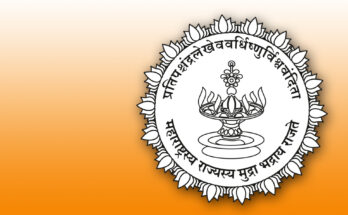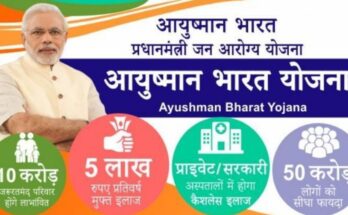New guidelines were announced for air travellers on the background of the omicron virus.
More stringent restrictions for air travellers on the background of the omicron virus.
MUMBAI: The World Health Organization (WHO) has declared new guidelines for air travellers in South Africa as well as some other

countries in the wake of the spread of Kovid-19, a mutated virus called Omicron, and declared the virus a ‘variant of concern’. Are done.
New instructions have been issued in this regard –
A – The restrictions imposed by the Government of India from time to time and the guidelines issued will be applicable to all international and domestic air travellers as minimum restrictions.
B- South Africa, Botswana, and Zimbabwe have been classified as “high risk” nations.
C – The decision to classify high-risk nations has been taken on the basis of the current situation after the omicron virus was detected and can be updated by the Government of Maharashtra as required.
D – Air passengers falling into the following categories will be declared as high-risk air passengers –
All air travellers entering Maharashtra are from high-risk nations.
Air travellers who have visited the high-risk nations within 15 days before arriving in Maharashtra.
E – In addition to the restrictions already imposed by the Government of India, the following restrictions may apply only to high-risk air travellers: –
“High-risk air passengers; Separate arrangements for landing at separate counters, preferably, can be made by the local Airport Management Authority, to facilitate their inspection and verification at all international airports in the State of Maharashtra. All such high-risk air passengers will have to undergo RTPCR tests immediately upon landing at the international airport and will have to undergo seven days of forced institutional isolation. Their second RTPCR test will be done after a period of seven days.
If anyone tests positive, such high-risk passengers will be admitted to a hospital with a covid treatment facility, and if their RTPCR test is negative on the seventh day, such high-risk passengers will be required to stay at home for seven days. ”
F (Immigration), as well as FRRO, have been instructed to make it mandatory for all passengers arriving at the airport by international flight to provide details of the countries they have visited in the last fortnight.
Similarly, Mumbai International Airport Limited (MIAL) has been directed to provide information about the passengers who have flown in the last fortnight to all the airlines so that it is easy to verify the travel information of these passengers. If passengers are found to have been given false information, action will be taken against them under various sections of the Disaster Management Act-2005.
G – All domestic air travellers must be fully vaccinated. If not, they are required to have an RTPCR ‘negative’ report 72 hours prior to arrival.



